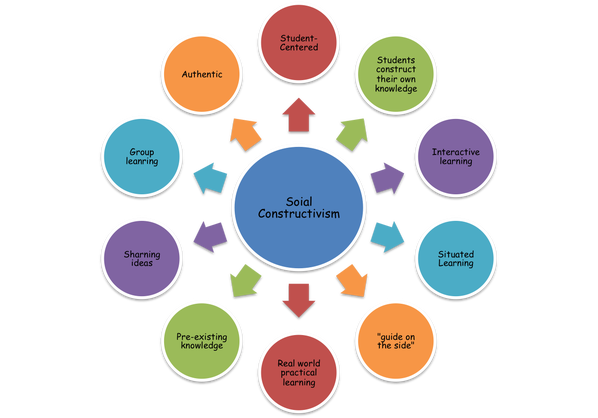 T
T wo days ago, Faculty Focus posted an excellent article on Is My Teaching Learning Centered?. One aspect of this post that really resonated with me was that it was question-driven. My good friend Enoch Hale has said in the past that:
wo days ago, Faculty Focus posted an excellent article on Is My Teaching Learning Centered?. One aspect of this post that really resonated with me was that it was question-driven. My good friend Enoch Hale has said in the past that:
“…the questions we ask drive the thinking we do. Conversely, the questions we fail to ask determine the thinking we fail to do.”
Enoch has used this approach in his very learning-centered teaching.
I have been out of a physical classroom for four years, but continue to actively teach in online classes. In reflecting on the Faculty Focus article, I began to “question” how I might change (or not change) these questions for totally online classes.
Characteristics of learner-centered teaching (per the Faculty Focus article)
- Does the course contain activities that put students in positions to learn from and with each other?
I am a big believer in using a social constructivist approach in elearning…that students learn best learning with and from each other…and that I am a co-learner with them. So I would not change this question…though I might modify to say “…that puts students and faculty in positions…”
- Are students encouraged to discover things for themselves, or does the teacher usually tell them what they should know and do?
This is a great question. Teaching on the “bleeding edge” of technology and change, I am the first to admit that the rate of change continues to accelerate…and that therefore we have to collectively (and collaboratively) explore. In a way, I co-opt my students into classes of research assistants, and through that process, we all learn. Curation tools like Pinterest or Diigo are great ways to reinforce this.
- Are there policies and practices in the course that promote the development of autonomous, self-directed learning skills?
Many years ago, I borrowed this from Jon Becker of Ed Leadership at VCU, and continue to agree with his philosophy. In my syllabus, I tell my students that they should evaluate each course artifact they create according to the following “rubric.” The progression denotes a range from the least personal growth to the most:
- I did not participate
- I did the minimum
- I impressed my family
- I impressed my classmates
- I impressed my professor
- I impressed myself
- Is student input solicited on course topics, policies, assessment methods, and class activities?
Good question…and one in which I could improve. I do think that by blending social media with the LMS, a class naturally begins to bring new resources to the surface that might not show up otherwise. I have been using Twitter in class for years (my current class hashtag) and just about every week, my students delight me with a new find. And Enoch brought to my attention last week a recent article on spec grading…which shows promise to place assessment decisions in the hands of students.
- Is collaboration emphasized more than competition in the course?
I might modify this question to ask whether the online class emphasizes collaboration, cooperation, or competition. And I would also explore some of the more positive aspects of competition, such as those that drive motivation through gamification.
- Is what’s being learned, why it’s being learned, and how it can be learned discussed more often than grades?
Great point…and equally valid in face-to-face and online learning situations.
- Are students voluntarily participating or do they sit silently until called on to answer questions and make comments? Does their nonverbal behavior indicate they’d rather not speak?
This is one question that is almost non-applicable in elearning…so I might modify it (assuming participation is required) to instead look at the depth of participation. Are responses surface level or deeper, indicative of critical thinking?
- Do students talk more than the teacher during class discussions? Do students respond to each other or only to the teacher?
Again, in a discussion-based elearning class, almost by definition the students “talk” more than the teacher. However, one can look at different ways to surface student voice, including screencasts, social media, and group wikis.
- Is it a course where questions play a more prominent role than answers?
One could argue that few classes have rigid answers any more. I love Steve Wheeler’s point here and here about asking Un-Googleable questions.
- Are students being taught how to answer their own questions?
This is a critical digital skill. Back in our early days at the VCU Center for Teaching Excellence, Jeff Nugent ran a faculty workshop on this. I have added some of his ideas into my current Northeastern University class on Technology as a Medium for Learning, where we spend a week exploring the concept of web searches, including advanced search, website validity and website ownership.
- Are mistakes handled as learning opportunities for the teacher and the students?
One of the fun aspects of teaching about technology is that new innovations often make your resources out of date. Rather than obsess about that, I use it as teaching moments to keep both myself and my students skeptical and inquisitive.
- Are skills like critical thinking and problem-solving taught explicitly?
I would not say that I “teach” critical thinking and problem-solving so much as I design in prompts that require their use. As Joseph Aoun noted in Robot-Proof, these are the skills our students will need to indeed be robot-proof.
- Is the teacher modeling how expert learners handle problems, find answers, deal with failure, and celebrate success?
Ask my students! I hope so.
- Are students being given the opportunity to develop self- and peer-assessment skills?
Another area for improvement. All of my classes have reflective components, which I think are critical to deeper learning. In my doctoral classes, we do a lot of peer-assessment as students explore and analyze quantitative and qualitative research. But I do not think that I am explicit enough about this in my Masters courses.
- Do students have the chance to practice the principles of constructive feedback (when they provide input about the course and/or about the work of their peers)?
I look for opportunities to engage my students in providing me feedback on what is working (and what is not).
- Do students regularly comment on evaluations that it was a course where they had to think? Or, was a course where they had to teach themselves (meaning the teacher held them responsible for learning)?
Good question…and my evaluations tend to have positive comments about the learning.
Anyway, a fun reflective exercise. It suggests that now might be a good time to go back and update my Teaching Philosophy!
How might you add to these questions? Are there questions that should only be asked of online faculty? As we look forward (per my Soonish exercise), will these questions evolve as we team with artificial intelligence?
Be interested in your thoughts!
{Graphics: Quora, University of Buffalo, jjackson91, Zoom}

